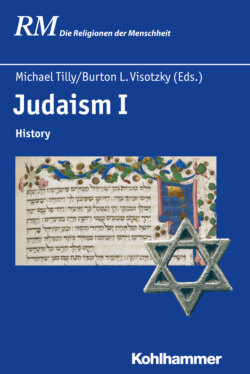Читать книгу Judaism I - Группа авторов - Страница 63
На сайте Литреса книга снята с продажи.
Distance from sacrifices among the Essenes93
ОглавлениеThe most important testimony is given by Philo (Prob. 75), when he says that the Essenes do not offer animals for sacrifice, but seek to equip their souls as befitting for holiness.94 Josephus makes a similar, if somewhat less clear, statement in Ant. 18.19:
Although they send votive gifts to the temple, they do not perform sacrifices (there) because of the difference in the purifications that are their custom. They have therefore also separated themselves from the common sanctuary and perform their sacrifices on their own.95
After a careful examination of the findings, Georg Klinzing comes to the conclusion that: »Taken as a whole it remains a remarkably little emphasized, but still sufficiently documented, indication that the Essenes did not participate in temple sacrifice.«96 In the Essenes we meet a Jewish community at the time of the existence of the temple, which may not have been a »community without a temple,« but a community without sacrifice. The broad consensus that the Yahad community by the Dead Sea had not only declared its separation from the Jerusalem temple cult and ceased to offer animal sacrifices there, has been contradicted by Jodi Magness97 on the basis of the deposits of animal bones and an altar within the settlement complex (L130). On the one hand, the animal bone deposits at Qumran resemble those of comparable ancient sanctuaries,98 but on the other hand in the area of L130 we find a free-standing altar in the first century BCE.99 A series of texts from the Qumran discoveries, such as the Temple Scroll, 11QPsa 27,4–7, 4Q394(MMT) and the Damascus Document pointed to a sacrificial practice on the part of the Yahad.100 It should be remembered that both the Temple Scroll and the Psalms Scroll 11QPsa are pre- or extra-Qumran Essene, that 4QMMT apparently comes from the early days of the Yahad, and also that the Damascus Document has the early days of the Yahad in view. So it seems entirely possible that into the first century BCE, animal sacrifices were performed at Qumran, and »that the Qumran sect observed the laws and lifestyle of the desert camp with the tabernacle in its midst, including offering animal sacrifices as mandated by biblical law.«101 But this does not alter the concept of cultic sacrifice transposing into rules and praise, as witnessed to in 1QS for the late second century BCE.
